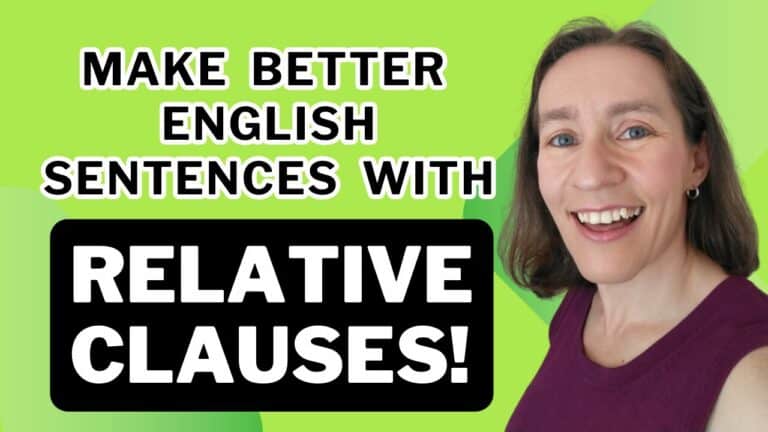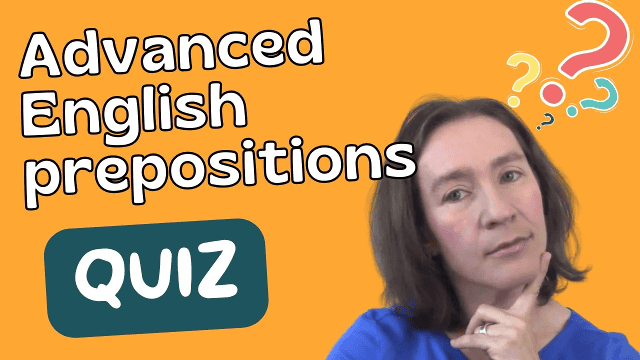
Adverbs are words that describe verbs, adjectives, other adverbs, or clauses. Adverbs often answer the questions “How?” and “In what way?” For example:
- She sings beautifully.
In what way does she sing? Beautifully. - He runs very fast.
How fast does he run? Very fast. - I occasionally practice speaking English.
How frequently do I practice? Occasionally.
The position of adverbs in the sentence depends on what type of adverb it is. Here are some general guidelines for knowing the position of adverbs:
#1 – Do not place an adverb between a verb and its object.
In the following sentence, painted is the verb, and the house is the object. Carefully is the adverb.
- I carefully painted the house. = Correct
- I painted the house carefully. = Correct
- I painted carefully the house. = Incorrect
Here’s another example. In this sentence, read is the verb, a book is the object, and sometimes is the adverb.
- I sometimes read a book before bed. = Correct
- Sometimes I read a book before bed. = Correct
- I read a book before bed sometimes. = OK, but informal
- I read sometimes a book before bed. = Incorrect

#2 – There are three normal positions for adverbs.
Front position: At the beginning of a clause
- Suddenly the phone rang.
- Fortunately, nobody was injured.
- Maybe I’ll go for a walk.
Mid-position: Next to the main verb
- I always exercise before work.
- They have completely forgotten about our appointment.
- He was probably late for the interview.
- She slowly began to recover from her illness.
End-position: At the end of a clause
- You speak English well.
- Please sit there.
- They ate dinner quietly.

#3 – The position of adverbs depends on their type. Some adverbs can go in various positions.
Adverbs of manner
Ex) quickly, slowly, easily, happily, well,* badly, seriously
- Mid-position gives less emphasis to the adverb:
- He quickly corrected his mistake.
- She easily passed the test.
- We happily accepted the invitation.
- End-position gives more emphasis to the adverb:
- He corrected his mistake quickly.
- She passed the test easily.
- We accepted the invitation happily.
* Adverbs of manner not ending in -ly (like well, hard, and fast) can only appear in the end position:
- They dance well.
- He’s working hard.
- She runs fast.

Adverbs of time & frequency
Definite frequency: Ex) daily,* weekly,* every year, last week
Front-position or end-position (more common).
- I study English every day.
- Every day, I study English.
- We went to Australia last year.
- Last year we went to Australia.
The single-word adverbs of frequency cannot go in the front-position:
- I speak with my mother daily.
- Let’s meet weekly to share updates on the project.
Indefinite frequency: Ex) often, usually, frequently, occasionally, sometimes, rarely, always, never, finally, eventually, soon
Always and never go in the mid-position, before the verb:
- I always wake up early.
- We never imagined this would be so hard.
The others can go in various positions:
- Usually I take the bus to work.
- I usually take the bus to work.
- Soon you’ll be finished with school.
- You’ll soon be finished with school.
- You’ll be finished with school soon.
- We occasionally drink wine.
- Occasionally we drink wine.
- We drink wine occasionally.
- We drink occasionally wine. = Incorrect!
Remember never to put an adverb in between the verb and its object.
Adverbs of place
Ex) downstairs, outside, nearby, south/southward, towards, backwards, everywhere
Usually go in end-position or mid-position immediately after the verb:
- The children are playing outside.
- The glass shattered and the pieces flew everywhere.
- They drove south/southward on the highway.
- He walked towards the police station.
Connecting & commenting adverbs
Connecting adverbs show the relationship between events or ideas: Ex) however, anyway, then, next, similarly, additionally, furthermore, otherwise
Commenting adverbs show us the speaker’s attitude or opinion about the sentence: Ex) fortunately, surprisingly, stupidly, personally, honestly
Both of these usually go in the front-position…
- First I went to the bank. Then I went to the post office.
- The test will be difficult. However, the students are well prepared.
- He doesn’t have a job. Furthermore, he’s not interested in finding one.
- I dropped my wallet on the street. Surprisingly, an honest person found it and gave it back to me.
- They showed me all the products available. Honestly, I didn’t like any of them.
…although for some of them other positions are possible:
- They showed me all the products available. I didn’t like any of them, honestly.
- They showed me all the products available. I honestly didn’t like any of them.
Adverbs of certainty
Ex) definitely, certainly, clearly, obviously, probably, maybe, perhaps
Maybe and perhaps usually go in the front-position:
- Maybe we’ll go out to eat tonight.
- Perhaps I should explain further.
Other adverbs of certainty usually go in the mid-position:
- We’ll probably go out to eat tonight.
- I should definitely explain further.
- He clearly made a mistake.
- That’s certainly not the case.
Emphasizing adverbs
Ex) very, really, extremely, terribly, quite, pretty, almost
These words usually go in the mid-position, immediately before the word that they emphasize.
- We’re very tired.
- Their new house is really impressive.
- He plays the piano extremely badly.
- This lesson is pretty easy to understand.
- The employees are terribly underpaid.
- It’s quite generous of you to let me stay at your house.
- We almost got lost in the city.
Learn more: 30 advanced adverbs
Image sources: imagerymajestic, stockimages, Freedigitalphotos.net










